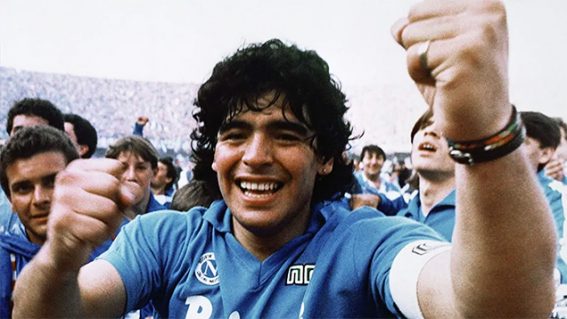Footy documentary This is Port Adelaide will please fans but leave outsiders bemused

Fans of Port Adelaide will find a lot of boxes ticked in this documentary about the iconic football club—but people outside the congregation probably won’t be converted, writes critic Travis Johnson.
I’m not a sports fan, but I dig sports movies. You sit me in front of an actual team sporting competition of almost any stripe and I’ll probably be looking at my phone within minutes. You put on The Club or North Dallas Forty or Hoosiers or Bull Durham or Any Given Sunday, and I’m in. Sports work as drama because at least one set of stakes are clearly defined: who’s gonna win and who’s gonna lose? It’s an easy hook—and even if you can’t tell the AFL from the NFL or League from Union, it’s easy enough to grok.
See also
* All new streaming movies & series
* Movies now playing in cinemas
Sports documentaries can give you the best of both worlds: actual (albeit historical) competition and a narrative crafted to milk that competition for maximum drama. This gives us the conflict on the field and the personalities off, exploring how the latter informs the former, often with a good dose of social commentary thrown in for good measure: think When We Were Kings or Hoop Dreams. And perhaps most relevant here, the one-two punch that was The Australian Dream and The Final Quarter, two films that looked at AFL player Adam Goodes’ battle against racism in the game and the crowd.
You can do a lot in this corner of the doco space, using sports to explore all manner of issues. This is Port Adelaide’s thesis, however, is that the eponymous club is very good and very old and has many dedicated fans. And that’s it.
Now, if you’re one of those dedicated fans, go with God, my child: I wouldn’t want to take that away from you, and this paean to the venerable team’s history and achievements will tick a lot of boxes for you. You are in the choir the film is preaching to and no doubt know all the words to the hymns. But as someone outside the congregation, director Nicole Miller never makes a strong enough case for conversion.
Shot in black and white and originally intended as a celebration of the club’s 150th anniversary in 2020, This is Port Adelaide shifts from historical hagiography to more contemporary issues when covering the abortive 2020 footy season. That year the spectre of the Covid-19 pandemic and resultant lockdown and public safety measures saw the club struggle with both the cultural and financial impact, playing to empty seats because of the ban on public gatherings. In a heart-warming show of solidarity, many fans chose not to take refunds for their tickets, instead ensuring the club’s coffers stayed topped up.

It’s here that This is Port Adelaide gets close to grappling with something of substance. The relationship between the working class and professional sports is an old and complex one, and Port Adelaide the actual place is working class as hell. The tribalism of team support is especially marked in such places, with people investing a lot of their personal identity into the club they barrack for. We meet some of those fans here, who proudly display their PAFC regalia, but you must wonder: surely the community took a financial hit during the pandemic too? Did anyone sacrifice to make sure the price of their season ticket went to the club?
Maybe they didn’t, but This is Port Adelaide has been touted as being about the community more than the club itself. We’re told that it “…celebrates the undying passion and loyalty of those at the heart of the club—a working-class story of success against all odds.” Yet it does so uncritically. The pandemic threw production off, of course, but it also offered an angle of inquiry: does the PAFC deserve more support than other institutions (and employers) affected by COVID? Why? Why not? Is there a cost to fandom? Is it happily borne? Disregard the possible answers for now—those are good questions, and this was a unique opportunity to ask them.
Instead, This is Port Adelaide remains an affectionate, celebratory look at a beloved and storied footy club—and that will surely please supporters. But there’s a missed opportunity here to really situate Port Adelaide in its time, place and culture; to really articulate what it means to its fans and why. This one is only for the faithful.


















